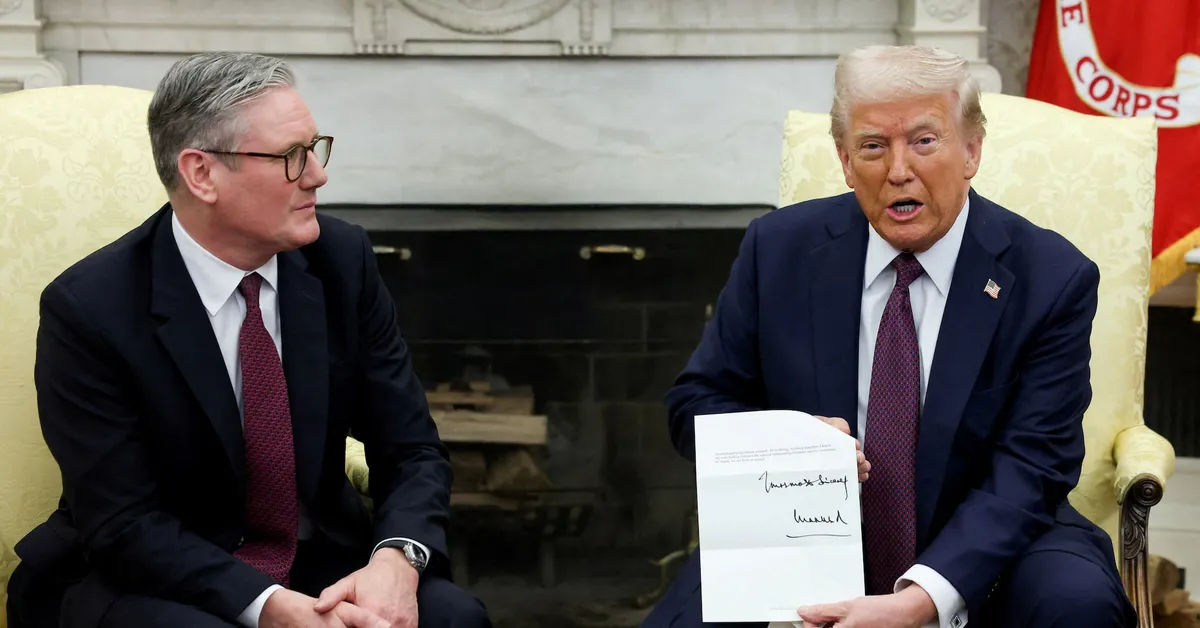
In the chaotic first 100 days of President Donald Trump's second term, the U.S. has plunged into an unprecedented global tariff war, dramatically slashing foreign aid and alienating key allies. Trump has openly criticized NATO allies while echoing Russia's narratives regarding its invasion of Ukraine. He has even floated controversial ideas about annexing Greenland, reclaiming the Panama Canal, and incorporating Canada as the 51st state. This unpredictable approach has begun to unravel parts of the rules-based international order that the U.S. helped establish post-World War II.
According to Elliott Abrams, a conservative veteran who served under Presidents Ronald Reagan and George W. Bush, Trump has become significantly more radical compared to his first term. Abrams noted, "I have been surprised." The America First agenda has not only alienated traditional allies but has also emboldened adversaries, raising questions about the extent of Trump's commitment to this approach. The consequences of his actions have instilled a sense of uncertainty in various governments, causing them to adapt in ways that may be difficult to reverse, even if a more conventional U.S. president is elected in 2028.
Critics of Trump have pointed to signs of democratic backsliding within the U.S., including verbal assaults on judges and a pressure campaign against educational institutions. There are also reports of transferring migrants to a notorious prison in El Salvador as part of an aggressive deportation strategy. Dennis Ross, a former Middle East negotiator, commented, "What we're seeing is a huge disruption in world affairs." Many experts agree that the current turmoil in global relations could be long-lasting, although some believe the situation may still be salvageable if Trump moderates his stance.
The fallout from Trump's policies is already evident. European allies are taking steps to enhance their own defense industries to lessen their reliance on U.S. military support. In South Korea, there is growing debate about developing an independent nuclear arsenal. Additionally, the deteriorating relations between the U.S. and its partners have led some nations to consider closer economic ties with China, which has been perceived as a viable alternative.
The White House has defended Trump's approach, arguing that his leadership is a necessary corrective to what they label the ineffective foreign policy of former President Joe Biden. National Security Council spokesman Brian Hughes stated that Trump is actively engaging both Ukraine and Russia to negotiate peace and is committed to holding China accountable for its actions. However, a Reuters/Ipsos poll indicates that over half of Americans, including a significant portion of Republicans, believe Trump is too closely aligned with Russia and are wary of his expansionist agenda.
Experts warn that the future of the global system, which has largely depended on U.S. leadership for the past 80 years, is at risk. This system is built on principles of free trade, the rule of law, and respect for territorial integrity. Trump's dismissive attitude toward multilateral organizations and his transactional view of international relations threaten to destabilize this order. His sweeping tariff policies have created turmoil in financial markets, weakened the dollar, and raised fears of a global economic slowdown.
International leaders are increasingly anxious about Trump's foreign policy. German Chancellor Friedrich Merz has expressed concerns about the future of European relations with the U.S., warning that an "America First" approach could lead to an "America Alone" scenario. Similarly, Trump’s aggressive rhetoric regarding territorial claims, including an insistence on acquiring Greenland and threatening to seize the Panama Canal, has alarmed many nations.
In response to Trump's policies, various governments are beginning to recalibrate their strategies. The European Union has prepared retaliatory tariffs, and countries like Germany and France are considering increasing their military expenditures. Canada, historically a close ally of the U.S., is looking to bolster economic and security ties with Europe as voter resentment toward Trump's actions grows. South Korea remains committed to its alliance with the U.S. but is also reevaluating its defense strategy amid threats to withdraw American troops.
Despite the current state of international relations, some analysts believe it is not too late for Trump to pivot in his foreign policy. Aaron David Miller, a former U.S. diplomat, suggests that pressure from Republicans concerned about economic risks could motivate Trump to adopt a more traditional approach. However, the potential damage to U.S. relations with its allies and the benefits adversaries might reap from this turmoil remain incalculable.
As the world watches, the implications of Trump's second term will likely be felt for years to come, shaping future geopolitics and international alliances.